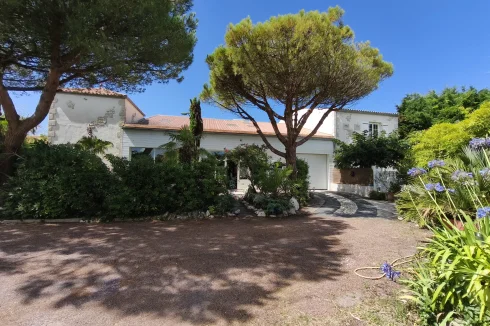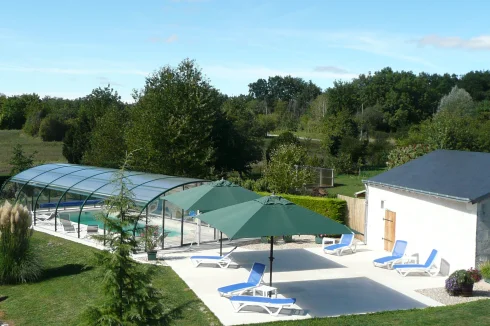Surge in Prices for Older Housing in France
Tuesday 04 May 2021
The Covid pandemic is beginning to change the structure of the housing market in France, as house prices rise significantly.
Despite the Covid crisis, it was spectacular year for the housing market in France in 2020, with sales down only -4% on 2019 (staying over 1 million) and provincial French house prices rising by an average of 6.4%, according to the Notaires de France.
Half of the price increase occurred in the last three months of the year, from sales that were agreed over the summer and autumn, before the November lockdown occurred.
Both the level of sales and rise in prices rises are higher than was reported by the estate agents earlier this year, when sales were expected to be under 1 million and price increases for the year were estimated to range between 2.1% and 5.5%.
The notaires consider that the appetite for house buying continues to be driven by historically low rates of interest, to which was added last year the impact of the Covid crisis.
As a result of the pandemic, sales in many of the normally buoyant metropolitan areas actually fell, as buyers sought refuge outside of the cities to suburbia or the countryside.
Thus, in Paris, which is normally the locomotive for the market, sales fell by -12%. The notaires also state that prices in the capital appear to have plateaued.
They postulate that the movement out of the cities may not only be the desire for greener pastures, but also simply because city prices have become too expensive for many buyers, stating: "House price pressures in the conglomerations is driving buyers outside of the cities, encouraged by a desire for 'green' homes, a desire accelerated by the health crisis; teleworking is becoming more widespread, strongly encouraged by the government, which makes it possible."
That is a view shared by FNAIM, the national association of estate agents, who state: "The market is rebalancing, and medium-sized towns and the outskirts of large cities are for the moment the winners of the crisis. The health crisis, but above all the continuing development of teleworking in many companies, is encouraging the French to move away from the big cities."
If the change is generalised, it could well result in a readjustment of prices in French cities, and the rediscovery of an upward movement in prices in small to medium sized towns, most of which have experienced a long period of falling or stagnant house prices.
Whilst the movement out of the cities has resulted in a strong performance for older, existing property, interest in new build homes has fallen.
Sales of new property collapsed in the final quarter of the year by -25%, whilst over the year they fell by nearly the same amount. That has also impacted on the level of construction, which has similarly fallen.
Not surprisingly, therefore, notaires talk of "a new build market that is going against the current of the older housing market".
Voices are now widespread on the urgent need for the government to step in and give support to the new build market, even though beyond certain areas of housing stress, demand is limited.
Others argue that with a record 8% of the house stock empty last year, France has a surplus of housing and that the priority for public resources should be renovation of the existing stock, not more new build.
As is normally the case, the notaires do not put a lot of meat on the bone in terms of a regional analysis of the movement in house prices, but as can be seen from the following graphic, the upward movement of prices in most urban areas is almost universal and, given the storyline, it can be expected that will also be the case for rural properties. We will be publishing more detailed information at a later date.

Thank you for showing an interest in our News section.
Our News section is no longer being published although our catalogue of articles remains in place.
If you found our News useful, please have a look at France Insider, our subscription based News service with in-depth analysis, or our authoritative Guides to France.
If you require advice and assistance with the purchase of French property and moving to France, then take a look at the France Insider Property Clinic.





